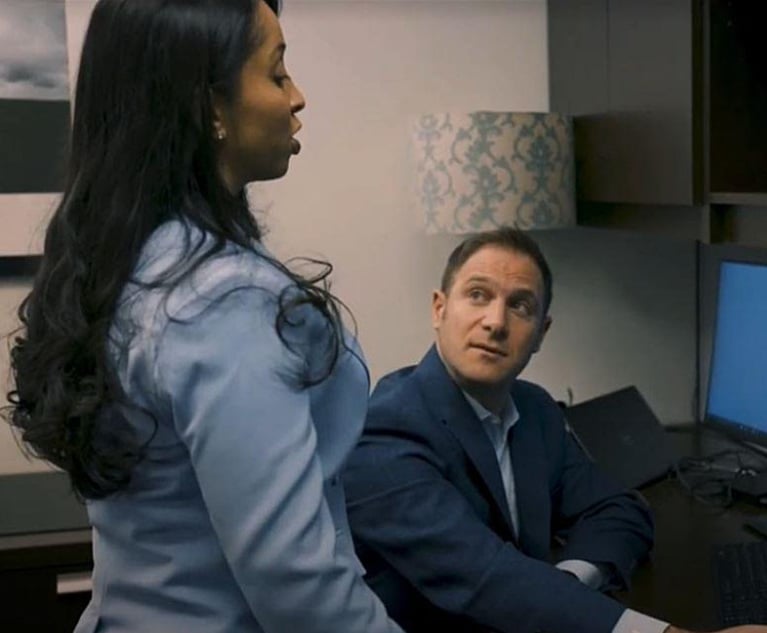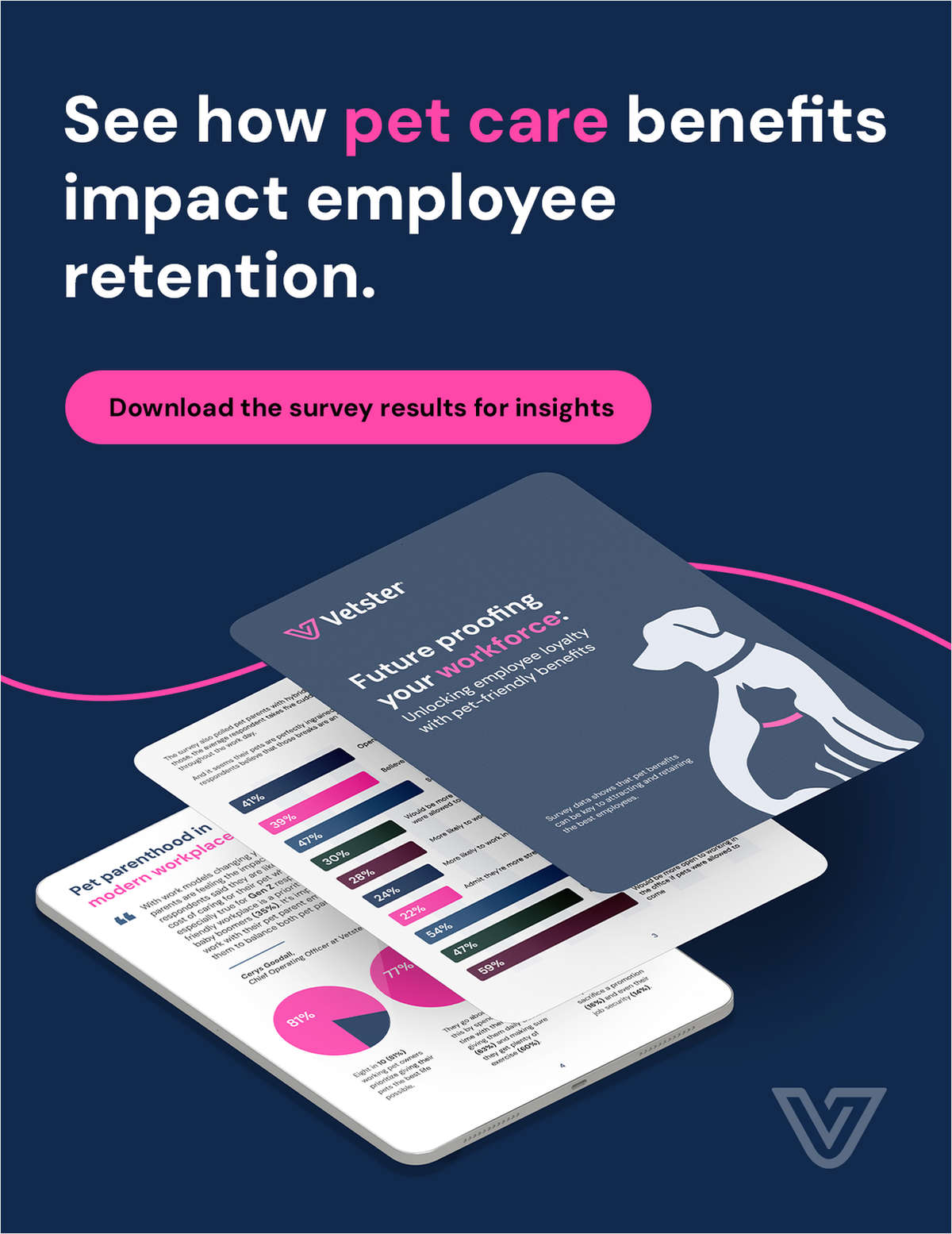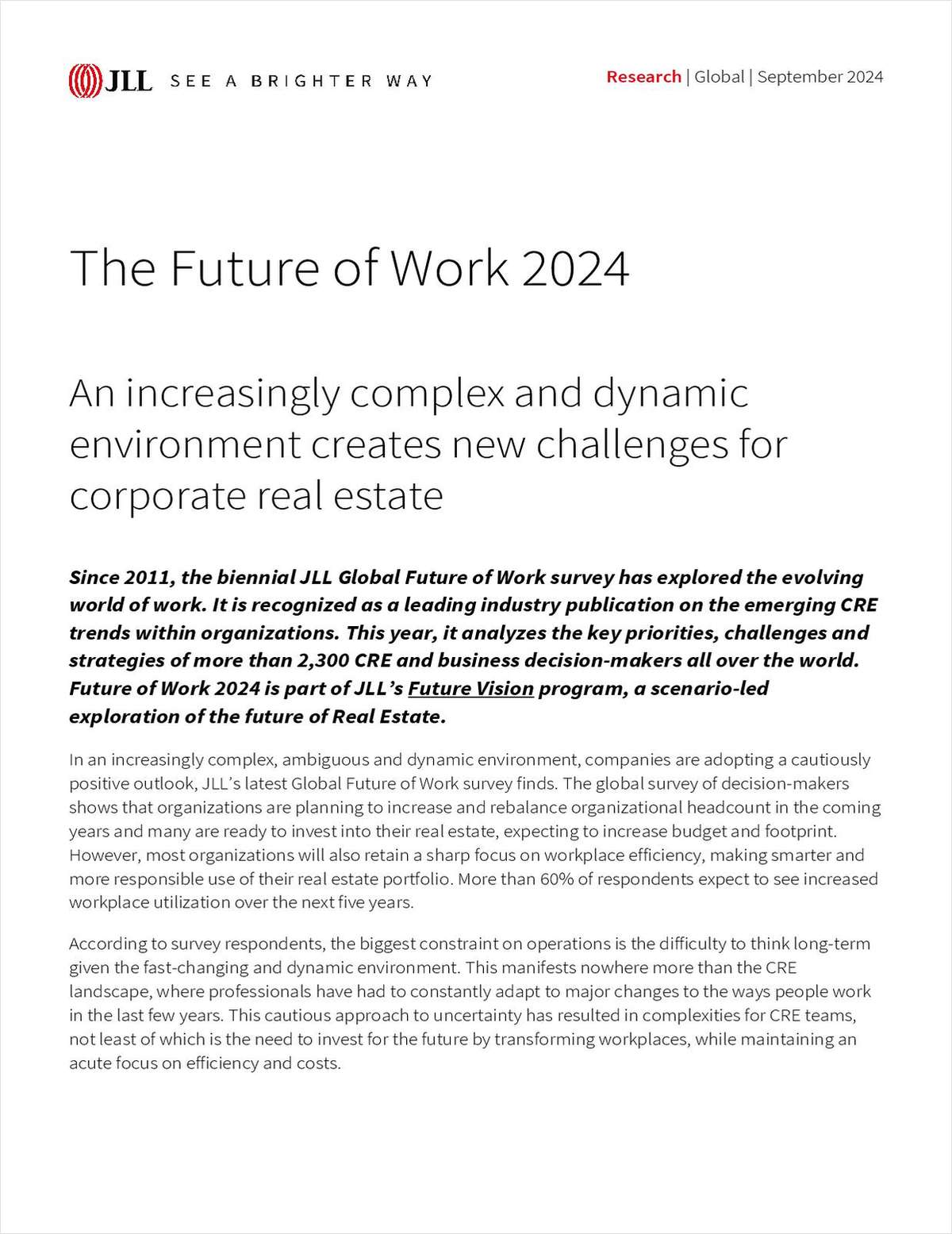Restitution for the Corporate Victim
Corporations and businesses of all varieties risk falling victim to crimes committed by their employees and becoming ensnared in criminal investigations…
October 24, 2017 at 11:00 AM
20 minute read

Corporations and businesses of all varieties risk falling victim to crimes committed by their employees and becoming ensnared in criminal investigations of their vendors and business partners. When wrongdoers are convicted federally, the Mandatory Victims Restitution Act (MVRA) requires that they make restitution for losses directly caused by their criminal conduct. In addition to direct losses, entities often incur additional losses when cooperating with and responding to a government investigation.
The MVRA provides for the recovery of these ancillary losses, but there is more to the process than simply submitting an invoice to the government to qualify for restitution. Indeed, recent cases make clear that there are limits to how far courts will go in making victims whole. To ensure maximum recovery for their clients, counsel should know of the limitations and how to present a successful claim.
Corporations as a “Victim”
Of course, to qualify as a victim entitled to restitution under the MVRA, a corporation must be “directly and proximately harmed as a result of the commission of an offense for which restitution may be ordered.” Qualifying offenses include: (i) crimes of violence; (ii) offenses against property, including any offense committed by fraud or deceit; and (iii) offenses related to tampering with consumer products.
However, a corporation that incurs losses as a result of criminal conduct is not always, ipso facto, a “victim” under the MVRA. For example, in in re: Wellcare Health Plans, a managed healthcare services provider petitioned for restitution after a federal grand jury indicted several of its former senior executives—including its CEO, CFO and vice president of government and regulatory affairs—for participating in a healthcare fraud scheme. Concurrent with the indictment of the provider's senior executives, the provider entered into a deferred prosecution agreement stemming from the same scheme. In that agreement, the provider admitted to knowingly and willfully engaging in the scheme by acting through its former officers and employees.
As a result of these admissions, the Eleventh Circuit rejected the provider's argument that the fraud was perpetrated by a “small group of top-level … employees … without approval from the board of directors or the vast majority of [the provider's] employees.” The court held that a corporation cannot be the “victim” of a crime in which it was complicit because under the MVRA “a victim does not exist without a perpetrator, and a perpetrator cannot be his own victim.” The Eleventh Circuit's decision rests on the unremarkable proposition that absent “exceptional circumstances, a co-conspirator cannot recover restitution.”
MVRA Extends to Corporate Victims
That said, a true corporate victim can recover restitution under the MVRA that includes “other expenses related to participation in the investigation or prosecution of the offense or attendance at proceedings related to the offense.” Significantly, courts have held that the requirement to reimburse victims for “other expenses related to participation in the investigation or prosecution of the offense” extends to attorney's fees and costs associated with the corporate victim's investigation and assistance with the prosecution of criminal conduct.
For example, in United States v. Gordon, Cisco Systems was served with grand jury subpoenas requiring Cisco to analyze data in connection with a government investigation of a former Cisco employee. The Ninth Circuit, relying on the MVRA, upheld a district court ruling awarding Cisco more than $1 million in restitution for “Cisco's investigation costs, including attorneys' fees … necessarily incurred by Cisco in aid of the proceedings.”
Similarly, in United States v. Amato, the Second Circuit upheld a restitution award of almost $13 million, including $3 million for attorneys' fees and accounting costs related to the defendant's internal investigation, finding that the “attorney fees and auditing costs were a direct and foreseeable result of [the] defendant's offenses.”
In other cases, courts have awarded restitution for costs relating to audits to uncover a defendant's wrongdoing, evaluating damage to computer systems, legal expenses to investigate a defendant's criminal conduct, and attorney fees and expenses incurred as a result of assisting with the government's investigation of a defendant's criminal conduct.
More recently, however, courts have retreated slightly from a generous interpretation of the MVRA and narrowed the circumstances where expansive restitution judgments are entered.
Necessity Requirement—“Participation in the Investigation or Prosecution of the Offense”
While cases like Amato and Gordon make clear that restitution is available to compensate corporations for sums expended to uncover and investigate criminal conduct, recently courts have narrowed the availability of restitution for corporate investigations.
For example, in United States v. Levis, the court granted a company's request for restitution of legal costs related to assisting the United States Attorney's Office in its investigation and prosecution of fraud by a company employee but denied the company's request for restitution for legal costs associated with the restatement of valuations on financial statements, which was purportedly related to the employee's misconduct and subject to a separate SEC investigation. Despite the company's assertion that the employee's illegal conduct necessitated the restatement, the court found that sums claimed to investigate, analyze and restate financials did not satisfy the statutory requirement that compensable expenses be “necessary” and “incurred during participation in the investigation or prosecution of the offense or attendance at proceedings related to the offense.”
Similarly, the Second Circuit reversed a restitution order that included costs related to an investigation of misconduct by a former employee when the costs were not “necessary” to aid in the government's investigation or prosecution. In United States v. Cuti, Duane Reade terminated its then-CEO, prompting the CEO to initiate arbitration proceedings related to his termination. During the arbitration, Duane Reade discovered and investigated suspicious accounting entries made during the CEO's tenure and turned the results of its investigation over to the United States Attorney's Office, leading to the successful prosecution of the CEO. Duane Reade sought restitution for the costs of its investigation. After the district court ordered restitution, including restitution for legal fees and expenses, the Second Circuit reversed the award, finding that the restitution request did not constitute “necessary” expenses because such expenses do not include circumstances where “a particular investigation was commenced, and its corresponding expenses incurred for another reason.” The court found that Duane Reade incurred the expenses to defend itself in an arbitration, not to uncover wrongdoing by an insider, and therefore, the expenses did not qualify for restitution under the MVRA.
Necessity Requirement—Reasonable Costs
In Cuti, the court also addressed whether the costs incurred by Duane Reade were reasonable. The record showed that Duane Reade engaged two law firms to prepare for the arbitration proceeding and to investigate the alleged malfeasance by the CEO. The court concluded that the duplicative work by two law firms could not have been reasonably necessary. Adding complication was the fact that the attorney's bills did not clearly indicate when the law firms' work transitioned from defending the impending arbitration to the investigation of criminal conduct by an employee. The court upheld restitution of attorney fees related to turning over findings to the government from one of the law firms but remanded to the district court to determine whether other fees were “necessary.”
The district court awarded Duane Reade over $6 million in legal fees and the CEO once again appealed. The Second Circuit again reversed and eliminated restitution for attorney's fees related to “monitoring the criminal proceedings,” including attending proceedings, reviewing trial transcripts, generating summaries of trial events and drafting press releases. In its decision, the court noted that there is a “crucial distinction” between activity that “merely helped” the prosecution and activity that is “truly” necessary—and that only the latter is compensable.
Similarly, in United States v. Lillemoe, the district court in Connecticut rejected a portion of a restitution request that it found was not “necessary.” More particularly it found that it was not necessary for the victim's counsel to travel back and forth from Washington, D.C., to New Haven to attend trial daily and that neither detailed summaries of all witness testimony nor trial updates were necessary.
In United States v. Gupta, the court also addressed whether a restitution request was “necessary” and “reasonable” under the circumstances. In that case, after the defendant, a former director at Goldman Sachs, was convicted of insider trading, Goldman Sachs requested restitution of almost $7 million in legal fees and other costs. In support of its request, Goldman Sachs submitted attorney billing records showing the legal fees were related to “fact-finding regarding Gupta's conduct, representing the Firm and its directors, officers, and employees in responding to criminal and regulatory enforcement investigations and the resulting prosecutions of Gupta … and providing other legal services that were a direct by-product of Gupta's conduct.” After reviewing the billing records to “assess what was done, how it was done, and why it was done,” the court awarded Goldman Sachs restitution but excluded a relatively modest sum finding that the matter was staffed by more attorneys than was “reasonably necessary.”
These decisions underscore the importance of carefully documenting the purpose of internal investigations when employee wrongdoing is involved, and documenting the reasonableness and necessity of all expenses related to such investigations. Courts have shown that they will call upon corporations seeking restitution to present evidence substantiating the fact that attorney fees were “necessary”—meaning thorough and accurate records can be the difference between receiving an order for restitution, receiving a portion of the restitution claimed or receiving nothing at all.
Conclusion
Given the costs of uncovering and investigating criminal conduct by employees, as well as in responding to government investigations of business partners, corporations owe it to their shareholders to vigorously pursue restitution under the MVRA. Despite recent decisions that impose certain limitations on the availability of restitution, corporations should establish a basis for and vigorously pursue restitution that includes necessary ancillary costs incurred in investigating and assisting in the prosecution of the wrongdoing.
Joe Martini and Jim Glasser are partners at Wiggin and Dana. Associate Matthew Cvercko contributed to this article.

Corporations and businesses of all varieties risk falling victim to crimes committed by their employees and becoming ensnared in criminal investigations of their vendors and business partners. When wrongdoers are convicted federally, the Mandatory Victims Restitution Act (MVRA) requires that they make restitution for losses directly caused by their criminal conduct. In addition to direct losses, entities often incur additional losses when cooperating with and responding to a government investigation.
The MVRA provides for the recovery of these ancillary losses, but there is more to the process than simply submitting an invoice to the government to qualify for restitution. Indeed, recent cases make clear that there are limits to how far courts will go in making victims whole. To ensure maximum recovery for their clients, counsel should know of the limitations and how to present a successful claim.
Corporations as a “Victim”
Of course, to qualify as a victim entitled to restitution under the MVRA, a corporation must be “directly and proximately harmed as a result of the commission of an offense for which restitution may be ordered.” Qualifying offenses include: (i) crimes of violence; (ii) offenses against property, including any offense committed by fraud or deceit; and (iii) offenses related to tampering with consumer products.
However, a corporation that incurs losses as a result of criminal conduct is not always, ipso facto, a “victim” under the MVRA. For example, in in re: Wellcare Health Plans, a managed healthcare services provider petitioned for restitution after a federal grand jury indicted several of its former senior executives—including its CEO, CFO and vice president of government and regulatory affairs—for participating in a healthcare fraud scheme. Concurrent with the indictment of the provider's senior executives, the provider entered into a deferred prosecution agreement stemming from the same scheme. In that agreement, the provider admitted to knowingly and willfully engaging in the scheme by acting through its former officers and employees.
As a result of these admissions, the Eleventh Circuit rejected the provider's argument that the fraud was perpetrated by a “small group of top-level … employees … without approval from the board of directors or the vast majority of [the provider's] employees.” The court held that a corporation cannot be the “victim” of a crime in which it was complicit because under the MVRA “a victim does not exist without a perpetrator, and a perpetrator cannot be his own victim.” The Eleventh Circuit's decision rests on the unremarkable proposition that absent “exceptional circumstances, a co-conspirator cannot recover restitution.”
MVRA Extends to Corporate Victims
That said, a true corporate victim can recover restitution under the MVRA that includes “other expenses related to participation in the investigation or prosecution of the offense or attendance at proceedings related to the offense.” Significantly, courts have held that the requirement to reimburse victims for “other expenses related to participation in the investigation or prosecution of the offense” extends to attorney's fees and costs associated with the corporate victim's investigation and assistance with the prosecution of criminal conduct.
For example, in United States v. Gordon, Cisco Systems was served with grand jury subpoenas requiring Cisco to analyze data in connection with a government investigation of a former Cisco employee. The Ninth Circuit, relying on the MVRA, upheld a district court ruling awarding Cisco more than $1 million in restitution for “Cisco's investigation costs, including attorneys' fees … necessarily incurred by Cisco in aid of the proceedings.”
Similarly, in United States v. Amato, the Second Circuit upheld a restitution award of almost $13 million, including $3 million for attorneys' fees and accounting costs related to the defendant's internal investigation, finding that the “attorney fees and auditing costs were a direct and foreseeable result of [the] defendant's offenses.”
In other cases, courts have awarded restitution for costs relating to audits to uncover a defendant's wrongdoing, evaluating damage to computer systems, legal expenses to investigate a defendant's criminal conduct, and attorney fees and expenses incurred as a result of assisting with the government's investigation of a defendant's criminal conduct.
More recently, however, courts have retreated slightly from a generous interpretation of the MVRA and narrowed the circumstances where expansive restitution judgments are entered.
Necessity Requirement—“Participation in the Investigation or Prosecution of the Offense”
While cases like Amato and Gordon make clear that restitution is available to compensate corporations for sums expended to uncover and investigate criminal conduct, recently courts have narrowed the availability of restitution for corporate investigations.
For example, in United States v. Levis, the court granted a company's request for restitution of legal costs related to assisting the United States Attorney's Office in its investigation and prosecution of fraud by a company employee but denied the company's request for restitution for legal costs associated with the restatement of valuations on financial statements, which was purportedly related to the employee's misconduct and subject to a separate SEC investigation. Despite the company's assertion that the employee's illegal conduct necessitated the restatement, the court found that sums claimed to investigate, analyze and restate financials did not satisfy the statutory requirement that compensable expenses be “necessary” and “incurred during participation in the investigation or prosecution of the offense or attendance at proceedings related to the offense.”
Similarly, the Second Circuit reversed a restitution order that included costs related to an investigation of misconduct by a former employee when the costs were not “necessary” to aid in the government's investigation or prosecution. In United States v. Cuti,
Necessity Requirement—Reasonable Costs
In Cuti, the court also addressed whether the costs incurred by
The district court awarded
Similarly, in United States v. Lillemoe, the district court in Connecticut rejected a portion of a restitution request that it found was not “necessary.” More particularly it found that it was not necessary for the victim's counsel to travel back and forth from Washington, D.C., to New Haven to attend trial daily and that neither detailed summaries of all witness testimony nor trial updates were necessary.
In United States v. Gupta, the court also addressed whether a restitution request was “necessary” and “reasonable” under the circumstances. In that case, after the defendant, a former director at
These decisions underscore the importance of carefully documenting the purpose of internal investigations when employee wrongdoing is involved, and documenting the reasonableness and necessity of all expenses related to such investigations. Courts have shown that they will call upon corporations seeking restitution to present evidence substantiating the fact that attorney fees were “necessary”—meaning thorough and accurate records can be the difference between receiving an order for restitution, receiving a portion of the restitution claimed or receiving nothing at all.
Conclusion
Given the costs of uncovering and investigating criminal conduct by employees, as well as in responding to government investigations of business partners, corporations owe it to their shareholders to vigorously pursue restitution under the MVRA. Despite recent decisions that impose certain limitations on the availability of restitution, corporations should establish a basis for and vigorously pursue restitution that includes necessary ancillary costs incurred in investigating and assisting in the prosecution of the wrongdoing.
Joe Martini and Jim Glasser are partners at
This content has been archived. It is available through our partners, LexisNexis® and Bloomberg Law.
To view this content, please continue to their sites.
Not a Lexis Subscriber?
Subscribe Now
Not a Bloomberg Law Subscriber?
Subscribe Now
NOT FOR REPRINT
© 2024 ALM Global, LLC, All Rights Reserved. Request academic re-use from www.copyright.com. All other uses, submit a request to [email protected]. For more information visit Asset & Logo Licensing.
You Might Like
View All
Connecticut's Wiggin and Dana Absorbs Boca Raton Trusts and Estates Boutique
3 minute read
Law Firm Leaders Say Gen AI Can Level Playing Field Between Large and Smaller Firms
6 minute read
Revenue Up 11.2%, PEP Up 22.1% at Akin, as Aggressive Hiring Pays Off
5 minute read
New England's Hinckley Allen Expands Southward, Opening 7th Office in Fort Lauderdale
2 minute readTrending Stories
Who Got The Work
Michael G. Bongiorno, Andrew Scott Dulberg and Elizabeth E. Driscoll from Wilmer Cutler Pickering Hale and Dorr have stepped in to represent Symbotic Inc., an A.I.-enabled technology platform that focuses on increasing supply chain efficiency, and other defendants in a pending shareholder derivative lawsuit. The case, filed Oct. 2 in Massachusetts District Court by the Brown Law Firm on behalf of Stephen Austen, accuses certain officers and directors of misleading investors in regard to Symbotic's potential for margin growth by failing to disclose that the company was not equipped to timely deploy its systems or manage expenses through project delays. The case, assigned to U.S. District Judge Nathaniel M. Gorton, is 1:24-cv-12522, Austen v. Cohen et al.
Who Got The Work
Edmund Polubinski and Marie Killmond of Davis Polk & Wardwell have entered appearances for data platform software development company MongoDB and other defendants in a pending shareholder derivative lawsuit. The action, filed Oct. 7 in New York Southern District Court by the Brown Law Firm, accuses the company's directors and/or officers of falsely expressing confidence in the company’s restructuring of its sales incentive plan and downplaying the severity of decreases in its upfront commitments. The case is 1:24-cv-07594, Roy v. Ittycheria et al.
Who Got The Work
Amy O. Bruchs and Kurt F. Ellison of Michael Best & Friedrich have entered appearances for Epic Systems Corp. in a pending employment discrimination lawsuit. The suit was filed Sept. 7 in Wisconsin Western District Court by Levine Eisberner LLC and Siri & Glimstad on behalf of a project manager who claims that he was wrongfully terminated after applying for a religious exemption to the defendant's COVID-19 vaccine mandate. The case, assigned to U.S. Magistrate Judge Anita Marie Boor, is 3:24-cv-00630, Secker, Nathan v. Epic Systems Corporation.
Who Got The Work
David X. Sullivan, Thomas J. Finn and Gregory A. Hall from McCarter & English have entered appearances for Sunrun Installation Services in a pending civil rights lawsuit. The complaint was filed Sept. 4 in Connecticut District Court by attorney Robert M. Berke on behalf of former employee George Edward Steins, who was arrested and charged with employing an unregistered home improvement salesperson. The complaint alleges that had Sunrun informed the Connecticut Department of Consumer Protection that the plaintiff's employment had ended in 2017 and that he no longer held Sunrun's home improvement contractor license, he would not have been hit with charges, which were dismissed in May 2024. The case, assigned to U.S. District Judge Jeffrey A. Meyer, is 3:24-cv-01423, Steins v. Sunrun, Inc. et al.
Who Got The Work
Greenberg Traurig shareholder Joshua L. Raskin has entered an appearance for boohoo.com UK Ltd. in a pending patent infringement lawsuit. The suit, filed Sept. 3 in Texas Eastern District Court by Rozier Hardt McDonough on behalf of Alto Dynamics, asserts five patents related to an online shopping platform. The case, assigned to U.S. District Judge Rodney Gilstrap, is 2:24-cv-00719, Alto Dynamics, LLC v. boohoo.com UK Limited.
Featured Firms
Law Offices of Gary Martin Hays & Associates, P.C.
(470) 294-1674
Law Offices of Mark E. Salomone
(857) 444-6468
Smith & Hassler
(713) 739-1250










